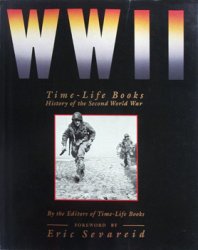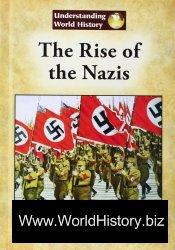Canadians, like virtually every other people in the industrialized world, were almost exclusively preoccupied with domestic economic problems during the 1930s. The trend towards withdrawal from international commitments, already strong in the previous decade, simply accelerated, so that by the mid-thirties the supporters of collective security formed a small minority. For every John W. Dafoe, whose Winnipeg Free Press consistently called for support of the League of Nations, there were several J. S. Woodsworths or Henri Bourassas who favoured Canadian neutrality in any future European conflict. Bennett, perhaps, and King certainly, were closer to the neutralist position than to that of the supporters of collective security, and in that they read the mood of the country accurately. Consequently, Canada played a minor, unheroic role in the international conflicts that marked the drift towards a new world war.
Bennett’s Conservative government, though its rhetoric was pro-imperial, followed the main foreign-policy lines laid down in the 1920s. It accepted the 1931 Statute of Westminster, which set the capping stone on the development of Canadian autonomy. At the League of Nations, in Geneva, Conservative-appointed delegates spoke the same non-committal phrases mouthed by their Liberal predecessors. Since O. D. Skelton, the Under-Secretary of State for External Affairs and a confirmed isolationist, remained the power behind the foreign-policy throne no matter which party was in power, that consistency was hardly surprising.
When Japan invaded Manchuria in 1931 Canada stated that it was unwilling to support any active resistance. The ominous rise of Hitler to power in 1933 hardly evoked a ripple of reaction. Nor was the new Liberal government prepared to act any differently. When the Canadian delegate at Geneva expressed support for oil sanctions against Mussolini’s Italy, in retaliation against that country’s invasion of Ethiopia, he was repudiated. King gave full support to the policy of appeasement adopted by the European powers in response to Hitler’s increasing aggressiveness. When the Spanish Civil War broke out in the summer of 1936, King’s government turned a blind eye to what was evidently a dress rehearsal for renewed world war. In Spain General Franco, supported by Hitler, challenged the legitimacy of the Communist-supported government of the republic. Despite their government’s attitude of neutrality some 1,300 Canadians volunteered to fight for Spanish democracy, as members of the Mackenzie-Papineau battalion. Among them was the radical Montreal medical doctor Norman Bethune, who organized a mobile blood-transfusion service to assist the wounded in the failing republican cause. From Spain Bethune would move on to China, where he gave his services, and his life, to the forces of Mao Zedong struggling to overthrow the authoritarian government of General Chiang Kai-shek.
Mackenzie King’s attitude during the Spanish Civil War reflected the sympathy of

Doctors Norman Bethune (right) and Richard Brown with soldiers of the Eighth Route Army, North China, probably in 1938. Inspired by a visit to the Soviet Union in 1935, Bethune became a dedicated Communist, and when the Spanish Civil War broke out he went to Spain to organize a mobile blood-transfusion service, the first of its kind. “Spain and China,” he wrote, “are part of the same battle,” and in 1938 he joined the rebel forces under Mao Zedong; he served as a surgeon, teacher, and propagandist until his death from septicemia in November 1939.
Many Catholic Quebecers for Franco, as well as his own naivete about Hitler’s intentions. Believing that the Nazi dictator was just a “simple German peasant” who had only the well-being of his country at heart, King hoped that Germany’s appetite could be quickly satiated. That self-delusion was increased by a visit he paid to Hitler in 1937.
Few dissented. When King, once a critic of a common imperial foreign policy, fell completely into line with Prime Minister Neville Chamberlain’s efforts to appease Hitler at the expense of democratic Czechoslovakia, at Munich early in 1938, there were few critics. The lonely voice of the Winnipeg Free Press asked, “What’s the Cheering For?”
King, and those who supported him, justified the policy of appeasement on two grounds. In the first place, it was argued, Germany had been punished too severely at the end of the Great War, and certain readjustments were necessary. Hitler’s
Authoritarianism and aggressive tactics might be questionable, but a stable Germany was desirable as a counterweight to the power of Stalin’s Soviet Union. Better the Nazis than the Communists. This argument was advanced with special enthusiasm in Catholic circles in Quebec. “More than two million Russians have already fallen victim to Lenin’s work,” VAction Catholique declared in 1933, “and the Red oligarchy is not finished. Hitler and Mussolini say with a certain good sense: it is better to hammer than to be hammered; and they hammer.”
National unity was the second ground on which King’s government supported appeasement. Whatever attitude Quebecois in particular but many other Canadians, too, adopted towards Fascism and Nazism—and the Canadian Fascist movement was very small—no one wanted another war. Quebecers especially believed that war would merely mean that Canada would again be tugged by Britain’s apron strings. And that, as in the first war, would lead to conscription for overseas service. The spectre of 1917 had never been allowed to vanish in Quebec, especially since Liberal politicians found it a useful ghost to raise against the feeble Conservative party at election time.
Thus, as the almost inevitable collapse of the international order approached, King, like a good general, continued to fight the previous war. He would keep the country together—and he would avoid the troubles of 1917 and the near destruction of the Liberal party—by refusing to commit Canada to any action that could be interpreted as a willingness to fight again. His government even refused admission to those Jewish refugees who, fleeing the certain death of Nazi concentration camps, sought safety in Canada. Again and again the old formula, “Parliament will decide in the light of existing circumstances,” was trotted out as a substitute for a foreign policy. Yet King never really doubted that should a European war again break out Canada would be involved once more. Hoping against hope for peace, he skilfully manoeuvred his country and his party into such a position that, when the dreaded day came in September 1939, it would enter the war united.
Hitler’s invasion of Poland proved finally and conclusively that the German dictator could be neither appeased nor trusted. Britain declared war. True to his word. King called upon Parliament to decide, and, seven days after Britain entered the war, Canada signed up. But from the outset—in contrast to 1914—Canada’s participation had a clearly specified limit. King, and even more emphatically, Ernest Lapointe, on behalf of the French-Canadian Liberals, stated that the war would be fought on the basis of voluntary enlistment. There would be no conscription for overseas service. That said, Canada entered a world war for the second time in twenty-five years.
Appeasement had kept the country united. It had not prevented war. That was what a solemn John W. Dafoe meant when he wrote towards the end of 1939:
I have postponed my departure for a day in order to see my son, Van, off to the wars. I met the troop train at Smiths Falls on Tuesday morning and accompanied it to Montreal. They were a fine lot of men, and I felt pretty sad seeing them going overseas to finish the job that we thought was finished twenty years ago if the achievements of the army had been properly seconded by the statesmen.




 World History
World History









